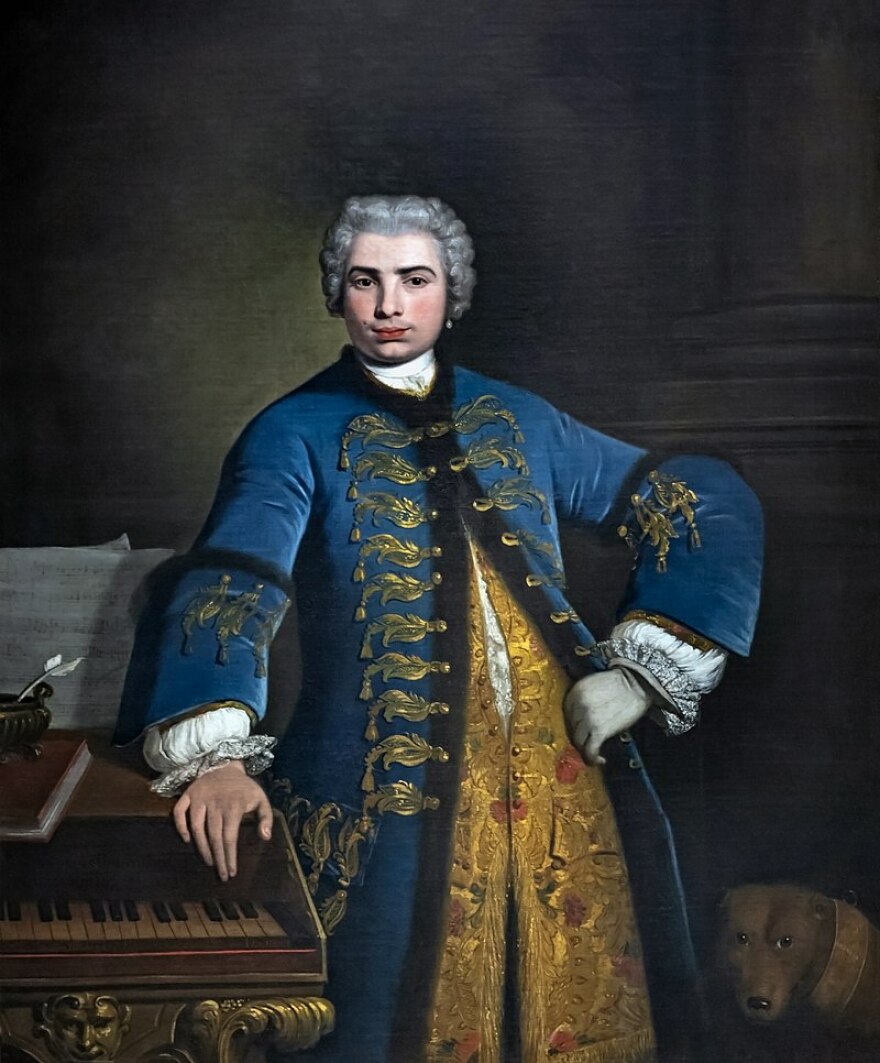The castrato Farinelli was one of the most celebrated singers of the eighteenth century. In a new album on the Decca label, mezzo-soprano Cecilia Bartoli performs repertoire that was written specifically for Farinelli to sing.
Castrated when he was about 12 years old, Farinelli (born Carlo Maria Michelangelo Nicola Broschi in 1705) had become a star on the Italian operatic stage by the time he was 20.
Opera composers including Johann Adolf Hasse, Nicola Porpora and Riccardo Broschi (the singer's brother) all wrote music specifically for him. Even George Frederic Handel invited Farinelli to join his opera company in London - without success.

Castrati singing voices were extremely popular in Europe in the 1600s and 1700s. Biologically, castrati retained their prepubescent treble vocal ranges but grew adult-sized lungs and breath capacity.
Their voices were preferred for leading heroic roles in many operas of the period. Handel wrote the title roles of "Giulio Cesare" and "Orlando" for a castrato, and Mozart's Sesto ("La clemenza di Tito") and Idamante ("Idomeneo") were also castrato roles.
The practice of castrating vocally talented boys fell out of fashion during the 1800s. Only one castrato, Alessandro Moreschi, is known to have made any recordings. Moreschi's voice was captured on wax cylinders in 1902 and 1904.
In the 21st century, performing operatic roles written for castrati can present unique problems. Female sopranos are sometimes cast in the roles, as are countertenors (male sopranos whose treble ranges are cultivated through practice and study, not physical modification). Neither of these kinds of voices can exactly replicate what a castrato would have sounded like, though.

In her new album "Farinelli," mezzo-soprano Cecilia Bartoli tackles several arias written for Farinelli during the 1700s. Many of these arias were composed to exploit his ability to sing notes in a very high register and to sustain phrases for an exceptionally long amount of time.
In the album's press release, Bartoli explains, "It is no coincidence that I can realize the idea [of exploring the art of great castrati] now, when discussions about the abuse of the bodily integrity of artists have become so topical… the phenomenon should be highlighted from different points of view, without neglecting the terrible historical context."
Of particular interest are two selections from Johann Adolf Hasse's 1725 opera "Marc'Antonio e Cleopatra." Hasse wrote the role of Cleopatra for Farinelli, while Mark Anthony was portrayed by the middle-aged female contralto Vittoria Tesi.
In the album's artwork, Bartoli also explores flexible expressions of sex and gender.


